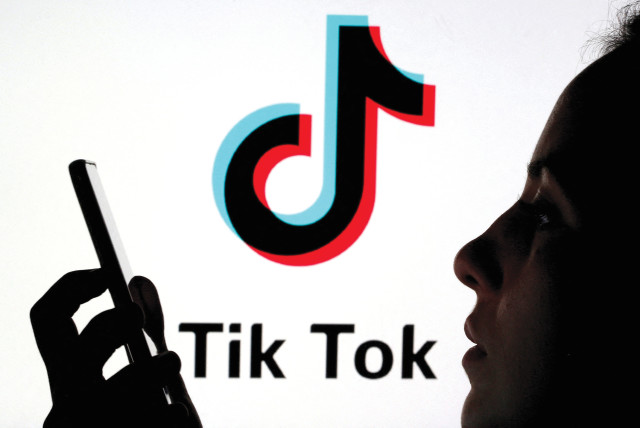Cancer misinformation is harmful to women’s health

Misinformation about cancer is spreading on TikTok and it's harming women.
Millions of women are turning to the Chinese social media platform TikTok for health advice related to gynecologic cancers, but the majority of that information is misleading or dramatically inaccurate and could endanger health, according to a new US study.
Senior study author Prof. Laura Chambers and her colleagues at the division of gynecologic oncology at Ohio State University wrote that their research highlighted the power of social media to feed misinformation that could be harmful to patient health outcomes. “But it also presents an opportunity to address gaps less likely to come up during a clinic appointment.”
They published their findings in the journal Gynecologic Oncology under the title “More than a song and dance: Exploration of patient perspectives and educational quality of gynecologic cancer content on TikTok.”
TikTok has been downloaded more than 130 million times in the US and reached two billion downloads around the world, mostly among young people. It’s a video-hosting service presenting videos ranging in duration from three seconds to 10 minutes that are submitted by individuals.
Chambers was interested in learning more about the unspoken concerns of her patients, many of whom are young women and mothers. She wanted to understand how they were using social media, what information they were sharing, and how they are consuming that information.
“The intent of this study was to understand the needs of patients that may go unspoken in the clinic but represent gaps in care that need to be addressed,” said Chambers. “As doctors, we are focused on treatment toxicities and patient outcomes, but many of our patients are navigating really difficult challenges at home – like figuring out how to show their child attention and love when they are going through exhausting treatments.”
For the study, she and her colleagues systematically searched for the 500 most-popular TikTok posts and analyzed the top five hashtags for each related to gynecologic cancer – ovarian, endometrial, cervical, and vulvar as well as gestational trophoblastic diseases (in which abnormal trophoblast cells that become a tumor grow inside the uterus after conception) for key themes, quality of information, and reliability of gynecologic cancer-related content on TikTok. Eleven central themes were identified, with significant differences when analyzed by disease site and race.
Demographic information, message tone and thematic topics were collected. Educational videos were rated for quality using an established health education information scale. As of August 2022, the top five hashtags for each gynecologic cancer had more than 466 million views.
Nearly 3/4 of information on TikTok was false
The researchers found that, in general, the quality of the information being shared through TikTok was poor and at least 73% of content was inaccurate and of poor educational quality. “This data inspired a lot of questions about where to go next in addressing these inaccuracies and communicating with patients directly, especially focusing on opportunities to create more diverse content to overcome racial and cultural disparities related to treatment of these cancers,” Chambers said.
The vulnerability shown in social media content around personal cancer journeys is worrisome. “This data really encourages us as a medical community to ask how we can provide a care environment that encourages that kind of trust and real conversation with patients and what we can do as a broader community to provide quality health information and support services to patients seeking information about gynecologic cancers.”
Chambers said she encourages patients who seek a community of like-minded people going through similar experiences to seek out in-person and online support communities sponsored by reputable medical- and patient advocacy organizations.
Jerusalem Post Store
`; document.getElementById("linkPremium").innerHTML = cont; var divWithLink = document.getElementById("premium-link"); if (divWithLink !== null && divWithLink !== 'undefined') { divWithLink.style.border = "solid 1px #cb0f3e"; divWithLink.style.textAlign = "center"; divWithLink.style.marginBottom = "15px"; divWithLink.style.marginTop = "15px"; divWithLink.style.width = "100%"; divWithLink.style.backgroundColor = "#122952"; divWithLink.style.color = "#ffffff"; divWithLink.style.lineHeight = "1.5"; } } (function (v, i) { });

